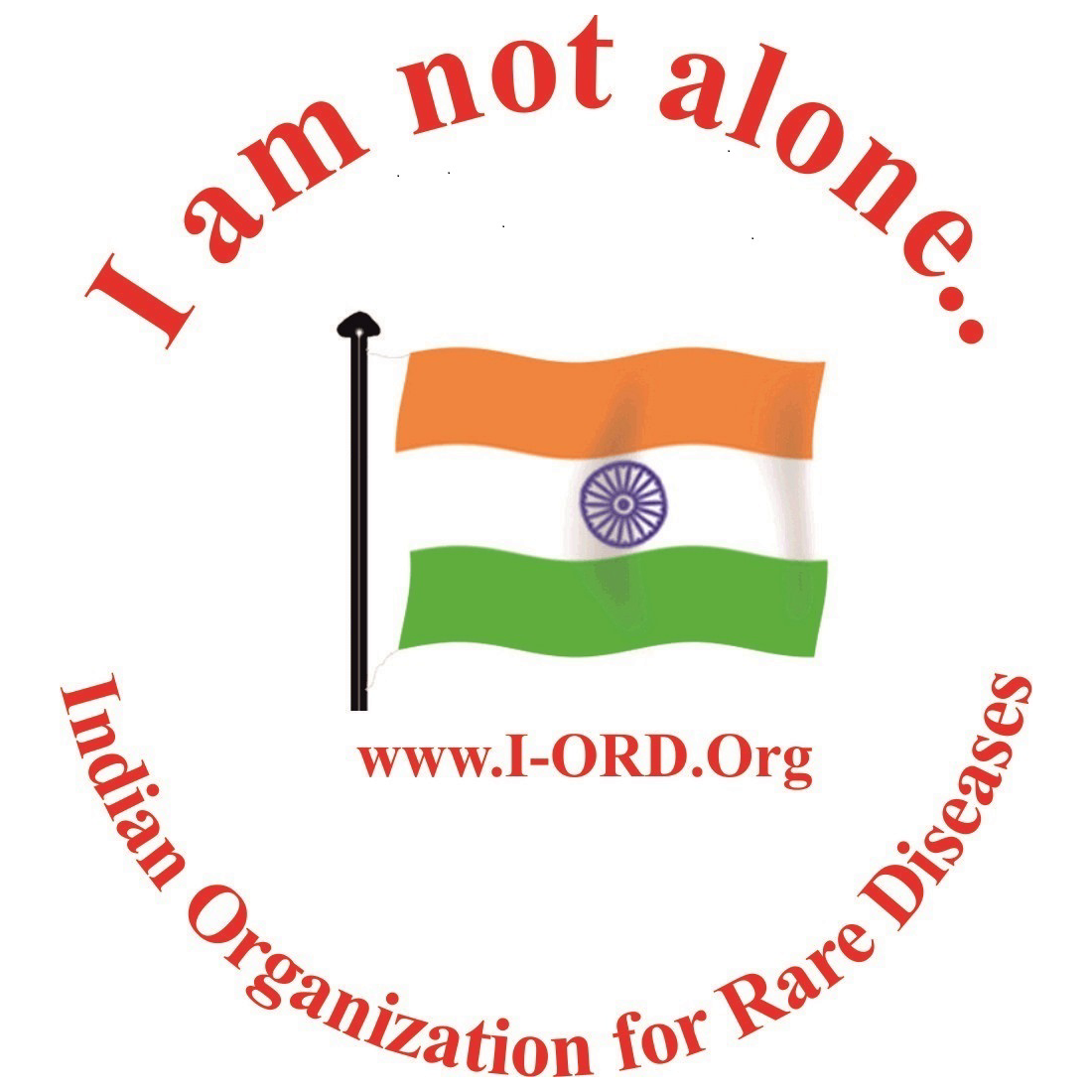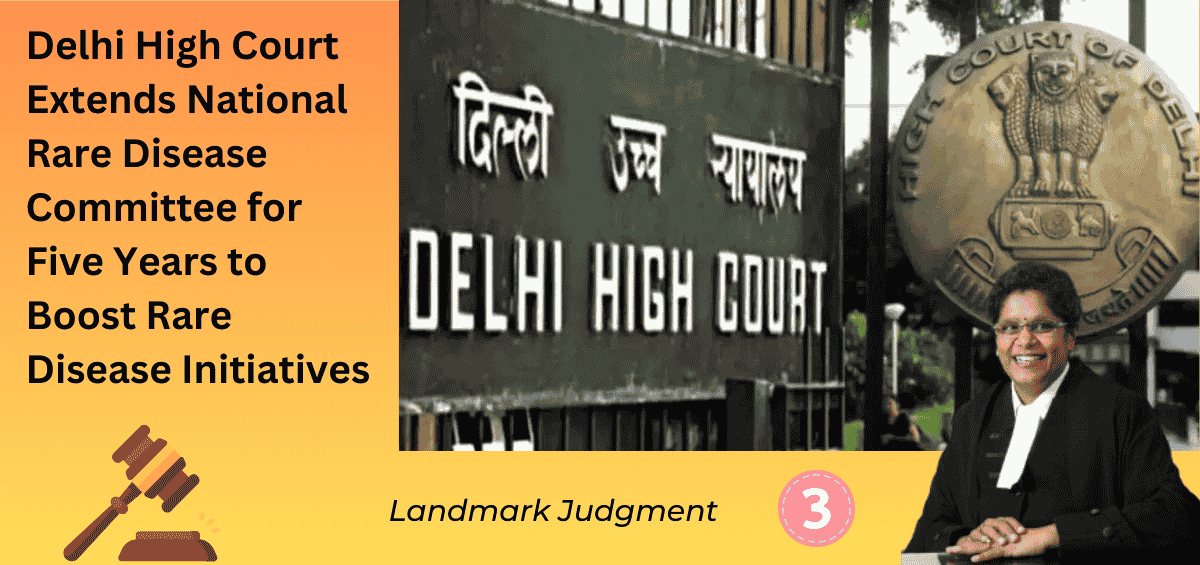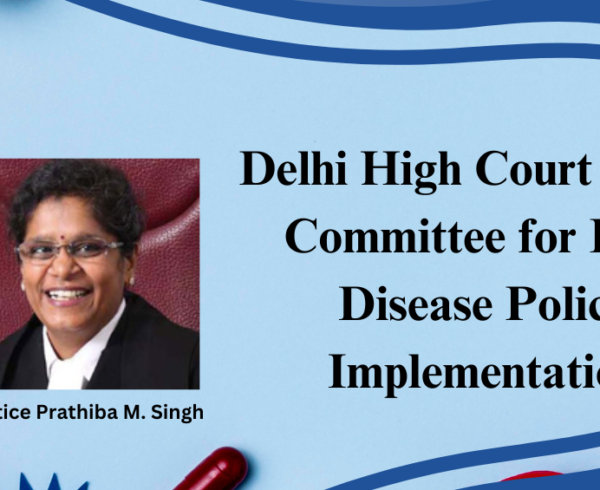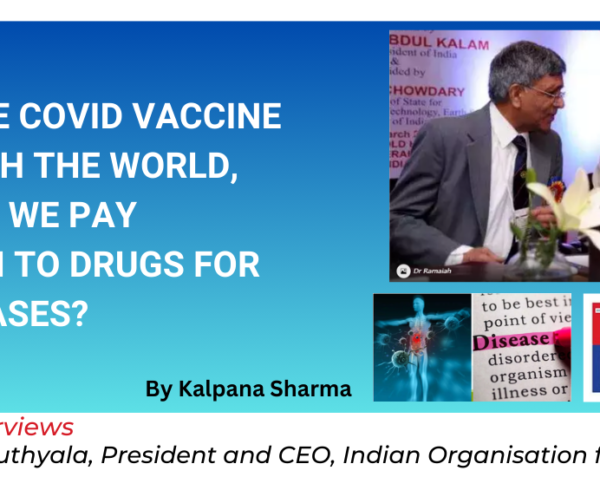Delhi: In a significant decision, the Delhi High Court has extended the tenure of the National Rare Disease Committee (NRDC) and broadened its mandate. This move aims to establish a more coordinated, efficient, and equitable framework for rare disease management in India by addressing existing gaps and enhancing policy implementation.
These measures promise much-needed relief to families affected by rare diseases. In her judgment in W.P.(C) 5315/2020, Justice Prathiba M. Singh underscored the pressing need for centralized coordination in rare disease care. At present, delays and the inadequate availability of therapies hinder the effectiveness of the existing framework, leaving patients and their families underserved. The NRDC seeks to address these challenges through a robust and systematic approach.
It may be recalled that Justice Singh’s earlier directive on May 15, 2023 included the formation of a five-member National Rare Disease Committee (NRDC). The primary role of the NRDC is to oversee the implementation of the National Rare Disease Policy and address cases registered at the All India Institute of Medical Sciences (AIIMS).
Composition of NRDC
The NRDC comprises the following members:
- Director General, Indian Council for Medical Research – Chairperson
- Nikhil Tandon, Professor, AIIMS – Member
- Secretary, Ministry of Health & Family Welfare or nominee – Member
- Drug Controller General of India – Member
- Madhulika Kabra, Professor, AIIMS – Member
NRDC’s Expanded Mandate
Policy Implementation and Monitoring
- Provide strategic guidance for implementing the National Rare Disease Policy.
- Conduct periodic reviews to refine the policy based on emerging research and challenges.
Rare Disease Identification and Recognition
- Continue efforts to identify and officially recognize rare diseases.
Uniform Guidelines Development
- Finalize and implement consistent criteria for including, excluding, and exiting patients with rare diseases from treatment programs.
Drug Procurement
- Support the Ministry of Health & Family Welfare (MoHFW) in establishing a centralized system for procuring drugs for rare diseases.
- Ensure that procurement of drugs for treating rare diseases is carried out at reasonable and affordable prices.
Price Negotiation for Bulk Purchase of Drugs
- Negotiate prices for bulk purchase of drugs for rare diseases with manufacturers, especially as most of these drugs are proprietary and produced by a single company. The negotiated prices may be provided to the Rare Disease Cell, MoHFW, for implementation.
Support for Indigenous Drug Development
- Encourage and assist stakeholders in developing indigenous drugs for rare diseases.
Periodic Review
- The NRDC will conduct periodic reviews of the Rare Diseases Policy and provide recommendations to update or refine the policy based on emerging research, new treatments, and the challenges faced by patients and healthcare providers.
Approvals and Oversight
The NRDC shall function as the overall authority for the following:
a) Receiving proposals from Centers of Excellence (CoEs) regarding patients requiring therapies or treatments.
b) Reviewing and assessing recommendations made by CoEs and subsequently approving treatments or therapies.
c) Initiating the procurement of medicines immediately after the NRDC approves a patient for treatment.






